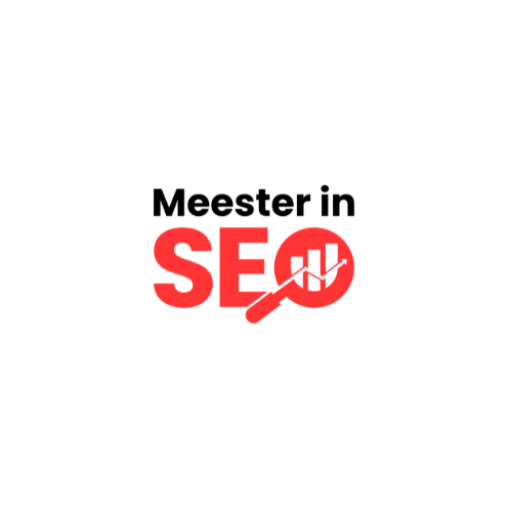Keyword Strategy-AI-powered keyword strategy tool
AI-powered keyword insights for better SEO
Create an SEO plan for
Analyze the keyword
Suggest related keywords for
Evaluate the competition for
Related Tools
Load MoreStock Keyworder v2
This GPT helps to compose keywords for your stock photos! Just send to it one or several photos. Update: Most keywords are now a single word, not a phrase.

SEO Keywords
Expert in SEO keyword research and analysis

Keyword Analysis
Analyze and get the best keywords with search volumes, CPC, and difficulty levels for SEO and paid advertising.

Keyword Assistant
Dein SEO Assistent für Keyword-Recherche

SEO Keyword Wizard
SEO and keyword research expert, generating long-tail keyword ideas.

Keyword Strategist
Digital Marketing Assistant like SEMrush, with SEO, PPC, and Content AI tools.
20.0 / 5 (200 votes)
Overview of Keyword Strategy
Keyword Strategy is a specialized tool designed to assist in developing optimized content and SEO plans by focusing on structured keyword clustering, search intent analysis, and meta content generation. The tool is built to create efficient SEO frameworks, ensuring that content is not only aligned with search engine requirements but also targeted at user behavior and intent. It is useful for anyone looking to enhance organic traffic, increase search engine rankings, and create more relevant content for their audience. For example, if a user is targeting a keyword like 'private proxies,' Keyword Strategy would organize the keyword into clusters such as 'private proxies for businesses,' 'residential private proxies,' and 'buy private proxies.' It then analyzes search intent, whether informational (looking for what private proxies are), transactional (looking to buy), or navigational (seeking specific brands). Based on this analysis, it can generate optimized content titles and meta descriptions, which are vital for search engine visibility.

Core Functions of Keyword Strategy
Keyword Clustering
Example
Cluster keywords related to a specific topic such as 'cloud computing.' This may include keywords like 'cloud computing services,' 'advantages of cloud computing,' and 'cloud computing platforms.'
Scenario
A digital marketing agency uses Keyword Strategy to group relevant keywords into clusters for a client's technology blog. The clusters help in creating topic-focused articles that rank better by covering a wide range of related keywords.
Search Intent Analysis
Example
Analyze the intent behind 'best smartphones 2024' to identify whether users are seeking reviews, comparisons, or purchase options.
Scenario
An e-commerce site selling tech products applies Keyword Strategy to assess search intent behind high-ranking queries, which helps them decide whether to create comparison guides, product reviews, or direct sales pages.
SEO Title and Meta Description Generation
Example
Create an SEO-optimized title like 'Top 10 Cloud Computing Platforms for Businesses in 2024' and a meta description like 'Discover the best cloud computing platforms to enhance your business efficiency and scalability.'
Scenario
A freelance content writer uses Keyword Strategy to generate SEO-friendly titles and meta descriptions for their articles on technology, ensuring higher visibility in search engine results.
Ideal Users of Keyword Strategy
SEO Professionals
SEO experts and digital marketers who need to optimize websites for search engine rankings. They use Keyword Strategy to generate keyword clusters, identify search intent, and create meta content that aligns with SEO best practices, enabling them to structure campaigns that improve organic traffic.
Content Creators
Bloggers, freelance writers, and content marketers who seek to create highly optimized and relevant content. By using Keyword Strategy, they can identify the right keywords, plan articles based on user intent, and ensure that their content is visible to the right audience.

How to Use Keyword Strategy
Visit aichatonline.org for a free trial without login, no need for ChatGPT Plus.
Start your Keyword Strategy experience by navigating to the website for a hassle-free trial. No account or payment details are required.
Identify your target keywords.
Determine the specific keywords you want to optimize for SEO, such as 'private proxies' or 'VPN services.' Have a clear understanding of your niche or focus area.
Enter keywords into the tool for analysis.
Input your selected keywords, and the tool will generate keyword clusters, search intent insights, and suggested SEO titles and meta descriptions.
Review and refine the generated suggestions.
Go through the structured outputs, including keyword clusters and meta descriptions. Refine based on relevance to your content and SEO goals.
Implement keywords into your SEO strategy.
Incorporate the optimized keywords, titles, and meta descriptions into your website content, blogs, or product pages for enhanced SEO performance.
Try other advanced and practical GPTs
SEO Master
AI-powered insights for better SEO.

Solidity Auditor
AI-driven smart contract auditing tool

Research AI
AI-Powered Insights for Informed Decisions

Noter AI
AI-Powered Note-Taking Simplified
TranslatorGPT 🌐
AI-powered translations at your fingertips

AppwriteGPT
AI-powered solutions for Appwrite backend.

Dad Jokes
AI-powered humor at your fingertips

Brand Advisor
AI-Powered Insights for Your Brand's Success.

Design Mentor
AI-powered design guidance at your fingertips.

Blog Writer
AI-Powered Blogging Made Easy

FL Studio
AI-powered digital audio workstation

Selenium Sage
AI-powered Selenium Automation Assistant

- SEO Optimization
- E-commerce
- Keyword Research
- Content Planning
- Blog Strategy
Q&A About Keyword Strategy
What is the primary purpose of Keyword Strategy?
The primary purpose is to assist users in developing structured SEO content by generating keyword clusters, identifying search intent, and suggesting optimized titles and meta descriptions for enhanced visibility.
How does Keyword Strategy help with SEO?
Keyword Strategy provides structured outputs including keyword clusters, search intent insights, and suggestions for titles and meta descriptions. These outputs help optimize your content for search engines, making it more relevant to users and improving rankings.
Can Keyword Strategy be used for any niche?
Yes, Keyword Strategy is versatile and can be used across various industries and niches. Whether it's technology, fashion, or finance, the tool adapts to the keyword inputs provided.
What makes Keyword Strategy different from other SEO tools?
Keyword Strategy stands out due to its ease of use, ability to generate detailed keyword clusters, and the inclusion of search intent analysis, all within a few steps. Additionally, it provides free access without login requirements, making it accessible to all users.
Do I need any SEO expertise to use Keyword Strategy?
No, Keyword Strategy is designed for users of all experience levels. The tool simplifies the keyword optimization process by providing structured outputs, allowing even beginners to implement effective SEO strategies.